#State Prison
Explore tagged Tumblr posts
Text
Luigi Mangione and other inmates enduring human rights abuses
#tiktok#Luigi Mangione#allegedly#police state#police#BT news#prison#prison abolition#human rights abuses#inmates#abolition#federal prison#state prison#solitary confinement#New york
11 notes
·
View notes
Note
Hey, I’m turning 18 soon and am thinking of going to the jail, my question is for my role play character, all I know I want to be a punk put in my place by the guards and inmates. But I don’t what my story should be like I’m a college freshman who got a little too drunk and now has years to be spent behind bars, or a Juvie inmate being moved up to adult prison, you got any ideas?
Nice to meet you!
How exciting for you! I would be happy if you shared your first experience with us.
Definitely NOT a punk. You need to be the spoiled brat who fucks up at a party. You get wasted and have a traffic crash. You kill one of your fraternity brothers who was riding in your car. You get sentenced to 7 years of hard labor because the judge wants to "send a message" to other brats like you.

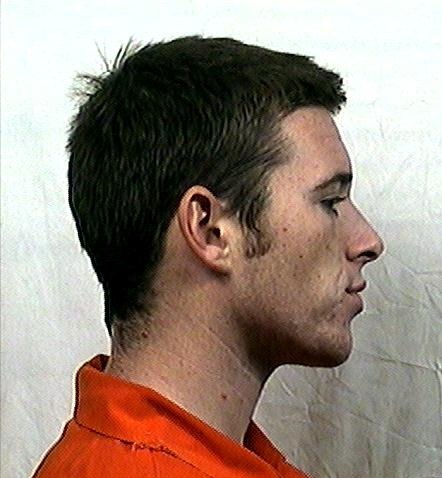
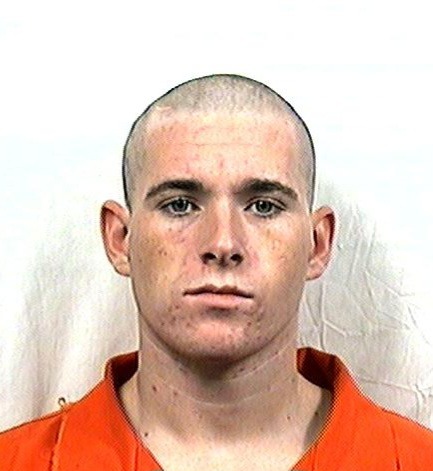
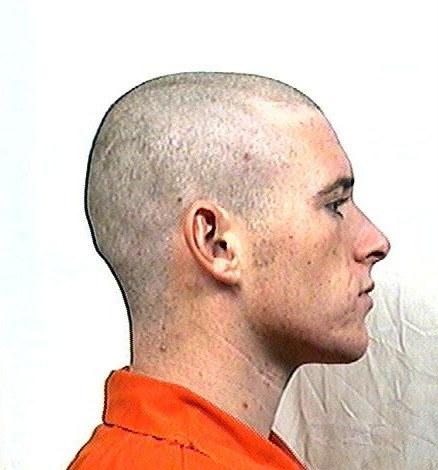
This is the little brat I am thinking about!
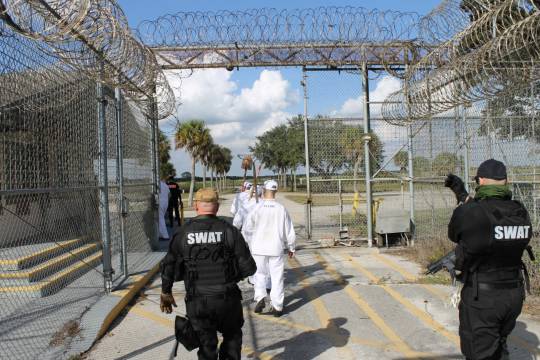

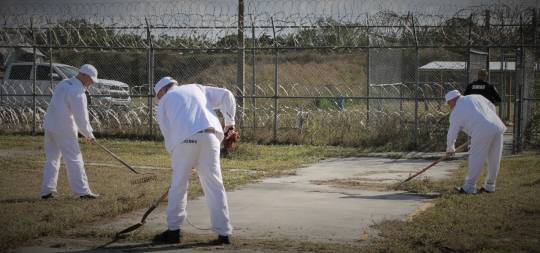
You end up doing hard labor behind razor wire!
How's that?? I hope you will reply back.
Question about Hampton Jail Role Play Scenario
#question#role play#mugshot#scenario#male#orange jail jumpsuit#state prison#prison#prison whites#chaingang
39 notes
·
View notes
Text
"On a freezing cold Wednesday afternoon in eastern Kentucky, Taysha DeVaughan joined a small gathering at the foot of a reclaimed strip mine to celebrate a homecoming. “It’s a return of an ancestor,” DeVaughan said. “It’s a return of a relative.”
That relative was the land they stood on, part of a tract slated for a federal penitentiary that many in the crowd consider another injustice in a region riddled with them. The mine shut down years ago, but the site, near the town of Roxana, still bears the scars of extraction.
DeVaughan, an enrolled member of the Comanche Nation, joined some two dozen people on January 22 to celebrate the Appalachian Rekindling Project buying 63 acres within the prison’s footprint.
“What we’re here to do is to protect her and to give her a voice,” DeVaughan said. “She’s been through mountaintop removal. She’s been blown up, she’s been scraped up, she’s been hurt.”
The Appalachian Rekindling Project, which she helped found last year, wants to rewild the site with bison and native flora and fauna, open it to intertribal gatherings, and, it hopes, stop the prison.
The environmental justice organization worked with a coalition of local nonprofits, including Build Community Not Prisons and the Institute to End Mass Incarceration, to raise $160,000 to buy the plot from a family who owned the land generationally.
Retired truck driver Wayne Whitaker, who owns neighboring land and had considered purchasing it as a hunting ground, told Grist he was supportive. “There’s nothing positive we’ll get out of this prison,” he said.
The penitentiary has been a gleam in the eye of state and local officials and the Bureau of Prisons since 2006. It has always sparked sharp divisions in Roxana and beyond and was killed in 2019 after a series of lawsuits, only to be quietly resurrected in 2022. Last fall, the bureau took the final step in its approval process, clearing the way to begin buying land...
In his book Coal, Cages, Crisis, Schept noted that mine sites are considered ideal locations for prisons or a dumping ground for waste, rather than places of ecological value, as some biologists have argued. The Roxana site has been reclaimed, meaning re-vegetated with a forest that now shelters a number of rare species, including endangered bats.
Opponents argue that a prison will bring more environmental problems than jobs. Letcher County was 1 of 13 counties ravaged by catastrophic flooding in 2022, a situation exacerbated by damage strip mining caused to local watersheds. The prison slated for Roxana will exacerbate the problem.
The Bureau of Prisons estimates it will damage 6,290 feet of streams and about 2 acres of wetlands. (The agency has promised to compensate the state.)
DeVaughan said the purchase also is a step toward rectifying the dispossession that began with the forced removal and genocide of Indigenous peoples. The Cherokee, Shawnee, and Yuchi made their homes in the area before, during, and after colonization, and their thriving nations raised crops, ran businesses, and hunted bison that once roamed Appalachia.
In all the time since, coal, timber, gas, and landholding companies have at times owned almost half of the land in 80 counties stretching from West Virginia to Alabama. Several prisons sprang from deals made with coal companies, something many locals consider the continuation of this status quo.
Changing that dynamic is a priority for the Appalachian Rekindling Project, which hoped to buy more land to protect it from extractive industries and return its stewardship to Indigenous and local communities. DeVaughn said Indigenous peoples throughout the region will be welcome to use the land as a gathering place...
DeVaughan sees its work establishing a new vision of economic transition for coalfields, one that relies less on “dollars and numbers” and more on “healing and restoration” of the land and the Indigenous and other communities that live there.
She is working with some personal connections in the Cheyenne and Arapaho nations to acquire a herd of bison and plans to work with local volunteers, scientists, and students to inventory the site’s flora and fauna."
-via GoodGoodGood, February 6, 2025
#kentucky#united states#indigenous#first nations#comanche#north america#land back#rewilding#indigenous activism#conservation#prison abolition#bison#forest#good news#hope
2K notes
·
View notes
Text
Okay but the idea that Christians in the Severance universe believe that getting severed creates a completely separate, innocent individual who has the ability to be judged and go to either heaven or hell is actually so completely fucked. The implications for society at large are so scary like how long until that religious belief filters down into general belief and then into the legal system? Prisons no longer carrying out the death sentence but performing severance under the guise of mercy. You're sentenced to death/life in prison? Fear not! You can choose to get severed! Time will pass more quickly! Your innie is innocent and would get to work a normal job so at least some part of you is free! Meanwhile Lumon gets full time workers/slaves who are completing prison sentences for crimes they've never committed
#considering the real life state of us prison labor? lumon would 100% do this#severance#severance spoilers
1K notes
·
View notes
Text
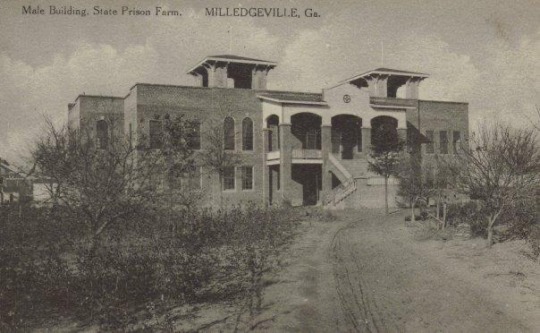
0 notes
Text

#bernie#bernie sanders#senator sanders#senator bernie sanders#politics#political#us politics#news#donald trump#american politics#president trump#elon musk#jd vance#law#america#justice#us news#trump administration#republicans#elon#maga#republican#american#democrats#economy#trump admin#current events#jail#prison#united states
885 notes
·
View notes
Text
We talk about prison "abolition" and not prison "reform" not because we believe it's possible to create a system where no incarceration is necessary. We say "abolition" because we want to create systems that allow the establishment of a new reparative justice structure, which uses incarceration as little as possible, and which is not a reform of the current incarceration structure, which does not repair or do justice. We do not believe the current structure can be reformed.
Reforming our current incarceration system into a justice system would be like reforming a dog fighting structure into a dog training structure. (And before anyone accuses me of comparing people in prison to dogs - no, I'm not, but I am saying that people who run prisons treat people like dogs.) Dog fighting structures were never designed to train dogs. The people that run them aren't qualified to train dogs for anything but violence (and are incentivized to continue training violence). The incarceration system creates violence and antisocial behavior. It is incentivized to continue doing so. It was never meant to repair social harm.
Prison abolition means, piece by piece, cutting off the supply of bodies to the incarceration structure.
When drug users get medical care instead of being criminalized, prisons are no longer needed to house drug users. When the mentally ill are given medical care instead of being criminalized, prisons are no longer needed to house the mentally ill. When homeless people are given housing instead of being criminalized, prisons are no longer needed to house the homeless. When impoverished people are given welfare and food benefits instead of being criminalized, prisons are no longer needed to house the poor. When youth are given opportunities outside of gangs, prisons have fewer gang members to house. We shrink the system, and we keep shrinking it. Next we create systems to reduce the population of domestic abusers. Next we tackle sexual assault. Every time it shrinks, we look at the remaining population and figure out what population we can tackle next.
That's how prison abolition works.
1K notes
·
View notes
Text
PA DOC Sued for Discriminating Against Person with Disabilities: The Right to AAC in Prison
there was a recent press release from Disability Rights PA about current litigation happening in PA that is trying to ensure that John Topper, a man with Huntington's disease, can access an Augmentative/Alternative Communication device while incarcerated.
Currently, the DOC is denying him all access to any communication aids, forcing him to "communicate by typing notes on a tablet and passing it back and forth with the person he is attempting to communicate with. This tablet breaks frequently, and prison staff regularly prevent him from bringing the tablet with him everywhere in the prison...After returning from the hospital, the DOC denied him a working communication aid for ten days. As a result, he was only able to communicate with psychiatry staff via thumbs up and down gestures."
this has dramatically impacted Topper's wellbeing: " 'This has been such an emotional and mental struggle for me daily. Day-to-day routines are very hard without a means of effective communication and I have to struggle to have my daily needs met,' said John Topper, the plaintiff in the case. "
Topper cannot access healthcare, daily programming, or stay in contact with his family members. Prison staff refuse to provide any forms of communication aids for daily interactions, making it difficult and sometimes impossible for Topper to request things like toothpaste, toilet paper, or other daily needs. This is cruel, harmful punishment that highlights the types of carceral violence that disabled people face while incarcerated.
This lawsuit is suing to get Topper daily and continuous access to an AAC text to speech device. His counsel already bought him this device and the prison has it available, and yet they refuse to give it to him for pointless and arbitrary reasons. They've told Topper he has to choose between a wheelchair accessible cell and a cell with an outlet, they've told him that they were making his current tablet accessible but then said the only accessible adaptation they could add was a screen-reader, which his does not need, and have threatened and taken away his current tablet many times. The cruelty is the point.
It's vital as disabled people that we have solidarity with those most targeted by the state, and that we fight for our comrades currently incarcerated. Prisons are disabling and prisons target disabled people: we need to fight to make sure our comrades can get their needs met, and we need to fight to free them all!
keep an eye on Disability Rights PA and Pennsylvania Institutional Law Project for updates about Topper's case and for any steps the public can take to support him. I've reached out to ask about how to send letters to him/info for his commissary fund; I will update this post when I get more information.
disability justice means free them all!!
#personal#disability#aac#aac user#disability justice#prison abolition#what's my tag. uh#prison literature#i think it's super important to act in solidarity with our disabled comrades who are incarcerated and facing some of the worst#violence from the state#i have my own horror stories from being arrested and held as a wheelchair user. i have so many#disabled comrades currently and formerly incarcerated. we know how fucking bad it gets#and how impossible it is to even get access to communication or to talk with our lawyers or the public#anyway. wanted to highlight this lawsuit
431 notes
·
View notes
Text
Prison-tech company bribed jails to ban in-person visits
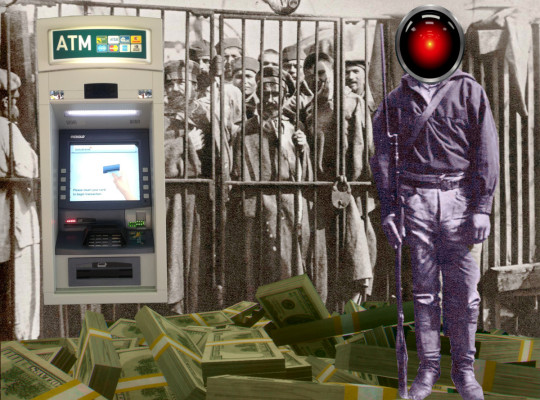
I'm on tour with my new, nationally bestselling novel The Bezzle! Catch me in BOSTON with Randall "XKCD" Munroe (Apr 11), then PROVIDENCE (Apr 12), and beyond!

Beware of geeks bearing gifts. When prison-tech companies started offering "free" tablets to America's vast army of prisoners, it set off alarm-bells for prison reform advocates – but not for the law-enforcement agencies that manage the great American carceral enterprise.
The pitch from these prison-tech companies was that they could cut the costs of locking people up while making jails and prisons safer. Hell, they'd even make life better for prisoners. And they'd do it for free!
These prison tablets would give every prisoner their own phone and their own video-conferencing terminal. They'd supply email, of course, and all the world's books, music, movies and games. Prisoners could maintain connections with the outside world, from family to continuing education. Sounds too good to be true, huh?
Here's the catch: all of these services are blisteringly expensive. Prisoners are accustomed to being gouged on phone calls – for years, prisons have done deals with private telcos that charge a fortune for prisoners' calls and split the take with prison administrators – but even by those standards, the calls you make on a tablet are still a ripoff.
Sure, there are some prisoners for whom money is no object – wealthy people who screwed up so bad they can't get bail and are stewing in a county lockup, along with the odd rich murderer or scammer serving a long bid. But most prisoners are poor. They start poor – the cops are more likely to arrest poor people than rich people, even for the same crime, and the poorer you are, the more likely you are to get convicted or be suckered into a plea bargain with a long sentence. State legislatures are easy to whip up into a froth about minimum sentences for shoplifters who steal $7 deodorant sticks, but they are wildly indifferent to the store owner's rampant wage-theft. Wage theft is by far the most costly form of property crime in America and it is almost entirely ignored:
https://www.theguardian.com/us-news/2023/jun/15/wage-theft-us-workers-employees
So America's prisons are heaving with its poorest citizens, and they're certainly not getting any richer while they're inside. While many prisoners hold jobs – prisoners produce $2b/year in goods and $9b/year in services – the average prison wage is $0.52/hour:
https://www.dollarsandsense.org/archives/2024/0324bowman.html
(In six states, prisoners get nothing; North Carolina law bans paying prisoners more than $1/day, the 13th Amendment to the US Constitution explicitly permits slavery – forced labor without pay – for prisoners.)
Likewise, prisoners' families are poor. They start poor – being poor is a strong correlate of being an American prisoner – and then one of their breadwinners is put behind bars, taking their income with them. The family savings go to paying a lawyer.
Prison-tech is a bet that these poor people, locked up and paid $1/day or less; or their families, deprived of an earner and in debt to a lawyer; will somehow come up with cash to pay $13 for a 20-minute phone call, $3 for an MP3, or double the Kindle price for an ebook.
How do you convince a prisoner earning $0.52/hour to spend $13 on a phone-call?
Well, for Securus and Viapath (AKA Global Tellink) – a pair of private equity backed prison monopolists who have swallowed nearly all their competitors – the answer was simple: they bribed prison officials to get rid of the prison phones.
Not just the phones, either: a pair of Michigan suits brought by the Civil Rights Corps accuse sheriffs and the state Department of Corrections of ending in-person visits in exchange for kickbacks from the money that prisoners' families would pay once the only way to reach their loved ones was over the "free" tablets:
https://arstechnica.com/tech-policy/2024/03/jails-banned-family-visits-to-make-more-money-on-video-calls-lawsuits-claim/
These two cases are just the tip of the iceberg; Civil Rights Corps says there are hundreds of jails and prisons where Securus and Viapath have struck similar corrupt bargains:
https://civilrightscorps.org/case/port-huron-michigan-right2hug/
And it's not just visits and calls. Prison-tech companies have convinced jails and prisons to eliminate mail and parcels. Letters to prisoners are scanned and delivered their tablets, at a price. Prisoners – and their loved ones – have to buy virtual "postage stamps" and pay one stamp per "page" of email. Scanned letters (say, hand-drawn birthday cards from your kids) cost several stamps:
https://pluralistic.net/2024/02/14/minnesota-nice/#shitty-technology-adoption-curve
Prisons and jails have also been convinced to eliminate their libraries and continuing education programs, and to get rid of TVs and recreational equipment. That way, prisoners will pay vastly inflated prices for streaming videos and DRM-locked music.
The icing on the cake? If the prison changes providers, all that data is wiped out – a prisoner serving decades of time will lose their music library, their kids' letters, the books they love. They can get some of that back – by working for $1/day – but the personal stuff? It's just gone.
Readers of my novels know all this. A prison-tech scam just like the one described in the Civil Rights Corps suits is at the center of my latest novel The Bezzle:
https://us.macmillan.com/books/9781250865878/thebezzle
Prison-tech has haunted me for years. At first, it was just the normal horror anyone with a shred of empathy would feel for prisoners and their families, captive customers for sadistic "businesses" that have figured out how to get the poorest, most desperate people in the country to make them billions. In the novel, I call prison-tech "a machine":
a million-armed robot whose every limb was tipped with a needle that sank itself into a different place on prisoners and their families and drew out a few more cc’s of blood.
But over time, that furious empathy gave way to dread. Prisoners are at the bottom of the shitty technology adoption curve. They endure the technological torments that haven't yet been sanded down on their bodies, normalized enough to impose them on people with a little more privilege and agency. I'm a long way up the curve from prisoners, but while the shitty technology curve may grind slow, it grinds fine:
https://pluralistic.net/2021/02/24/gwb-rumsfeld-monsters/#bossware
The future isn't here, it's just not evenly distributed. Prisoners are the ultimate early adopters of the technology that the richest, most powerful, most sadistic people in the country's corporate board-rooms would like to force us all to use.

If you'd like an essay-formatted version of this post to read or share, here's a link to it on pluralistic.net, my surveillance-free, ad-free, tracker-free blog:
https://pluralistic.net/2024/04/02/captive-customers/#guillotine-watch

Image: Cryteria (modified) https://commons.wikimedia.org/wiki/File:HAL9000.svg
CC BY 3.0 https://creativecommons.org/licenses/by/3.0/deed.en
--
Flying Logos https://commons.wikimedia.org/wiki/File:Over_$1,000,000_dollars_in_USD_$100_bill_stacks.png
CC BY-SA 4.0 https://creativecommons.org/licenses/by-sa/4.0/deed.en
--
KGBO https://commons.wikimedia.org/wiki/File:Suncorp_Bank_ATM.jpg
CC BY-SA 3.0 https://creativecommons.org/licenses/by-sa/3.0/deed.en
#pluralistic#prison#prison-tech#marty hench#the bezzle#securus#captive audiences#St Clair County#human rights#prisoners rights#viapath#gtl#global tellink#Genesee County#michigan#guillotine watch#carceral state#corruption
1K notes
·
View notes
Text
In all honesty, I kind of predicted this outcome a few weeks ago, so it’s hard to really feel that disappointment and despair I felt in 2016.
I just think “wow that sucks. But I’ll live. I know I’ll survive. I know my family and friends will survive. I’m not going to succumb to despair. It’s not worth it.”
#txt#I kind of accepted a lot of people will fight for their life to defend and protect inequality and oppression#this is a country that rallied in defense to protect a teenager that drove across multiple states#with an illegal gun to shoot and kill people#so I’m tired of feeling despair. I’m not going to feel despair. but I’m not numb to it either. I’m just going to keep moving on#also I have other thoughts too but I’m trying not to go to prison
1K notes
·
View notes
Text
andrew becomes increasingly tense during aaron's trial. neil expected it to be the anticipation of andrew's testimony and cross examination. that day comes and it's horrific, but it ends. andrew remains tense. he exerts more than neil and kevin at night practices, he doesn't sleep, he joins neil on runs.
sentencing comes and andrew is so wound up that neil thinks he could tip andrew over and he'd fracture into thousands of pieces. they stand as the judge enters. andrew grabs neil's wrist hard enough to break the bone. he stops breathing. his eyes are closed.
it's self-defense. aaron is acquitted of all charges.
that night, andrew invites neil upstairs to share the bed, and to neil's surprise, he leans into neil's space and rests his head on neil's shoulder. he is relaxed.
"trial had you nervous?" neil whispers.
"it was enough," is all andrew says back as if every burden he's carried since the start of the trial has been lifted off his shoulders.
#his testimony he means#his testimony was enough to save aaron#he gave so much of himself away up there on that stand and he's been freaking out over whether all of him will be enough#to keep aaron out of prison#bc aaron has dreams and ambitions to be someone after palmetto state#aftg#all for the game#aaron minyard#andrew minyard#aftg headcanon#twinyard#aftg post canon#neil josten
556 notes
·
View notes
Text

ALT
The U.S. government is taking people off the street and sending them to the place in the bottom picture without charges filed, no arraignments, no due process and without notifying anyone of the people’s whereabouts.
El Salvador intends to never release anyone from CECOT.
#news#politics#us politics#usa news#donald trump#public news#world news#news update#breaking news#inauguration#el salvador#us news#us congress#us propaganda#us government#america#global news#international news#political news#usa#usa politics#united states#germany#ww2 germany#cecot#human rights#prison#concentration camps#dachau
193 notes
·
View notes
Note
Hey, saw that you're having a bit of rough day. :(
I'm almost finished the next part.
But, would you like Prowl to bully "the wet bread moron" Josh? (as a treat. there's a part I could slide it in) Like a little petty revenge like get back at people being jerks to orcas?
-GLC
Oh I would absolutely love that yes🥺👉👈
#Prowl deserves that#especially since they all keep expecting him to behave like a crazy scared horse/j#I was spending a lot of time watching videos and reading articles about wild and captive orcas#sorry it's a bit unrelated just don't mind the tags kflgmdbd#yeah so. I remember going to aquarium a bunch of years ago and seeing those performances#I was absolutely AMAZED by orcas because as a kid I was kinda obsessed with them haha#watched a lot of documentaries. all about wild orcas#so shortly after I went to the aquarium I tried to look for their stuff on the internet. some recordings and photos and names of the animals#there were A LOT of people SCREAMING around that content. Telling everyone that those animals are abused and suffering#-and shouldn't be held captive. Calling the aquarium “the orca prison” and stuff#I remember how annoyed I was seeing them. Because the staff cheerfully told me that “see they live happy they have a lot of food and-#-and nothing to worry about. What else can they want?“#I was so pissed at those “crazy hysterical eco activists” because they were actively ruining such a fun place#Now when I know better I wish I could meet those people and thank them#they got what they were fighting for. well. mostly they did#Hunting orcas is illegal now thanks to them#and breeding stopped too#they refused to let their last surviving Orca free (she was caught. not born in captivity) but they stated they won't try to get more orcas#Every time I see something about wild orcas it's so amazing and every time I see what humans do to them it gets more horrible#With all that said. If someone is still reading this haha. I now have another idea for a character who's gonna suffer immensely#because I went to see what exactly those activists vere fighting against and now I have some fresh fucking ideas
201 notes
·
View notes
Text

On July 18th, 2015, I realized that the Republican Party had left me behind. On this day, while seeking the Republican nomination for president, Donald Trump had the following to say about an Annapolis graduate who was shot down, captured and tortured as a POW by the communist North Vietnam regime:
“He's not a war hero. He was a war hero because he was captured. I like people who weren't captured."
This verbal diarrhea came out of the mouth of a man who used his father’s wealth and privilege to dodge the draft five different times due to his “bone spurs”. Donald Trump is a traitor, a repeated draft dodger and the largest fraud in the history of our country.
#trump 2024#donald trump#maga#make america great#maga republicans#2024 elections#maga 2024#2024 presidential election#the orange shit stain scam#never trump#trump will be lethal to the u.s dont be fucking stupid#trump lies#us politics#us presidential election#pow#prisoner of war#naval aviator#naval aviation#vietnam war#draft dodgers#Donald Trump draft dodger#deep state#the lies of donald trump#trump is a threat to democracy#putin’s bitch#putin’s puppet#2024 election
749 notes
·
View notes
Text
please share this is important!!!



link to tweet: https://x.com/shimmeringolds/status/1726054168916304250?s=46&t=KZJMvptKg1sELtIK2ugHbg
[ID: tweet from @/shimmeringolds on november 18th, 2023 that reads: “You all please look at this!!!! On Monday the Israeli occupation parliament is presenting a law to kill 7000 Palestinians in illegal israeli occupation prisons!!! If it passes, it means that the Palestinians who are in those prisons will be killed as part of the zionist law!!!”
the tweet she is quoting is from @/QudsNen (Quds News Network) on november 18th, 2023 and that tweet reads: “The Extremist "Itamar Ben Gvir" Minister of National Security in the Israeli occupation government:
"On Monday, there will be the first reading of the death penalty law for Palestinian political prisoners, this law is presented by the
"Otzma Yehudit" party (led by the extremist Ben Gvir) this law will be discussed in the national security committee. He added, I expect all members of the Knesset (Israeli parliament) to support this important law"
The number of Palestinians in Israeli prisons has increased to 7000 prisoners, 64 of whom are women. And tens of children. #Palestine_Genocide” Below the text there is a photo of Itamar Ben Gvir. End ID.]
#palestine#free palestine#israel is committing genocide#israel#israel is an apartheid state#pro palestine#gaza#genocide in palestine#genocide in gaza#genocide#palestinian prisoners#save palestine#support palestine#occupied palestine#palestine under attack#i stand with palestine#posts on palestine#israel is a terrorist state#israeli apartheid
1K notes
·
View notes
Text
FCC strikes a blow against prison profiteering
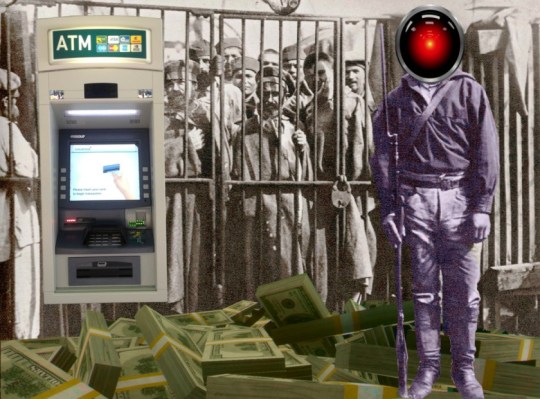
TOMORROW NIGHT (July 20), I'm appearing in CHICAGO at Exile in Bookville.

Here's a tip for policymakers hoping to improve the lives of the most Americans with the least effort: help prisoners.
After all, America is the most prolific imprisoner of its own people of any country in world history. We lock up more people than Stalin, than Mao, more than Botha, de Klerk or any other Apartheid-era South African president. And it's not just America's vast army of the incarcerated who are afflicted by our passion for imprisonment: their families and friends suffer, too.
That familial suffering isn't merely the constant pain of life without a loved one, either. America's prison profiteers treat prisoners' families as ATMs who can be made to pay and pay and pay.
This may seem like a losing strategy. After all, prison sentences are strongly correlated with poverty, and even if your family wasn't desperate before the state kidnapped one of its number and locked them behind bars, that loved one's legal defense and the loss of their income is a reliable predictor of downward social mobility.
Decent people don't view poor people as a source of riches. But for a certain kind of depraved sadist, the poor are an irresistible target. Sure, poor people don't have much money, but what they lack even more is protection under the law ("conservativism consists of the principle that there is an in-group whom the law protects but does not bind, and an out-group whom the law binds but does not protect" -Wilhoit). You can enjoy total impunity as you torment poor people, make them so miserable and afraid for their lives and safety that they will find some money, somewhere, and give it to you.
Mexican cartels understand this. They do a brisk trade in kidnapping asylum seekers whom the US has illegally forced to wait in Mexico to have their claims processed. The families of refugees – either in their home countries or in the USA – are typically badly off but they understand that Mexico will not lift a finger to protect a kidnapped refugee, and so when the kidnappers threaten the most grisly tortures as a means of extracting ransom, those desperate family members do whatever it takes to scrape up the blood-money.
What's more, the families of asylum seekers are not much better off than their kidnapped loved ones when it comes to seeking official protection. Family members who stayed behind in human rights hellholes like Bukele's El Salvador can't get their government to lodge official complaints with the Mexican ambassador, and family members who made it to the USA are in no position to get their Congressjerk to intercede with ICE or the Mexican consulate. This gives Mexico's crime syndicates total latitude to kidnap, torture, and grow rich by targeting the poorest, most desperate people in the world.
The private contractors that supply services to America's prisons are basically Mexican refugee-kidnappers with pretensions and shares listed on the NYSE. After decades of consolidation, the prison contracting sector has shrunk to two gigantic companies: Securus and Viapath (formerly Global Tellink). These private-equity backed behemoths dominate their sector, and have diversified, providing all kinds of services, from prison cafeteria meals to commissary, the prison stores where prisoners can buy food and other items.
If you're following closely, this is one of those places where the hair on the back of your neck starts to rise. These companies make money when prisoners buy food from the commissary, and they're also in charge of the quality of the food in the mess hall. If the food in the mess hall is adequate and nutritious, there's no reason to buy food from the commissary.
This is what economists call a "moral hazard." You can think of it as the reason that prison ramen costs 300% more than ramen in the free world:
https://pluralistic.net/2024/04/20/captive-market/#locked-in
(Not just ramen: in America's sweltering prisons, an 8" fan costs $40, and the price of water went up in Texas prisons by 50% during last summer's heatwave.)
It's actually worse than that: if you get sick from eating bad prison food, the same company that poisoned you gets paid to operate the infirmary where you're treated:
https://theappeal.org/massachusetts-prisons-wellpath-dentures-teeth/
Now, the scam of abusing prisoners to extract desperate pennies from their families is hardly new. There's written records of this stretching back to the middle ages. Nor is this pattern a unique one: making an unavoidable situation as miserable as possible and then upcharging people who have the ability to pay to get free of the torture is basically how the airlines work. Making coach as miserable as possible isn't merely about shaving pennies by shaving inches off your legroom: it's a way to "incentivize" anyone who can afford it to pay for an upgrade to business-class. The worse coach is, the more people you can convince to dip into their savings or fight with their boss to move classes. The torments visited upon everyone else in coach are economically valuable to the airlines: their groans and miseries translate directly into windfall profits, by convincing better-off passengers to pay not to have the same thing done to them.
Of course, with rare exceptions (flying to get an organ transplant, say) plane tickets are typically discretionary. Housing, on the other hand, is a human right and a prerequisite for human thriving. The worse things are for tenants, the more debt and privation people will endure to become home-owners, so it follows that making renters worse off makes homeowners richer:
https://pluralistic.net/2021/06/06/the-rents-too-damned-high/
For Securus and Viapath, the path to profitability is to lobby for mandatory, long prison sentences and then make things inside the prison as miserable as possible. Any prisoner whose family can find the funds can escape the worst of it, and all the prisoners who can't afford it serve the economically important function of showing the prisoners whose families can afford it how bad things will be if they don't pay.
If you're thinking that prisoners might pay Securus, Viapath and their competitors out of their own prison earnings, forget it. These companies have decided that the can make more by pocketing the difference between the vast sums paid by third parties for prisoners' labor and the pennies the prisoners get from their work. Remember, the 13th Amendment specifically allows for the enslavement of incarcerated people! Six states ban paying prisoners at all. North Carolina caps prisoners' wages at one dollar per day. The national average prison wage is $0.52/hour. Prisoners' labor produces $11b/year in goods and services:
https://www.dollarsandsense.org/archives/2024/0324bowman.html
Forced labor and extortion are a long and dishonorable tradition in incarceration, but this century saw the introduction of a novel, exciting way of extracting wealth from prisoners and their families. It started when private telcos took over prison telephones and raised the price of a prison phone call. These phone companies found willing collaborators in local jail and prison systems: all they had to do was offer to split the take with the jailers.
With the advent of the internet, things got far worse. Digitalization meant that prisons could replace the library, adult educations, commissary accounts, letter-mail, parcels, in-person visits and phone calls with a single tablet. These cheaply made tablets were offered for free to prisoners, who lost access to everything from their kids' handmade birthday cards to in-person visits with those kids.
In their place, prisoners' families had to pay huge premiums to have their letters scanned so that prisoners could pay (again) to view those scans on their tablets. Instead of in-person visits, prisoners families had to pay $3-10/minute for a janky, postage-stamp sized video. Perversely, jails and prisons replaced their in-person visitation rooms with rooms filled with shitty tablets where family members could sit and videoconference with their incarcerated loved ones who were just a few feet away:
https://pluralistic.net/2024/02/14/minnesota-nice/#shitty-technology-adoption-curve
Capitalists hate capitalism. The capital classes are on a relentless search for markets with captive customers and no competitors. The prison-tech industry was catnip for private equity funds, who bought and "rolled" up prison contractors, concentrating the sector into a duopoly of debt-laden companies whose ability to pay off their leveraged buyouts was contingent on their ability to terrorize prisoners' families into paying for their overpriced, low-quality products and services.
One particularly awful consequence of these rollups was the way that prisoners could lose access to their data when their prison's service-provider was merged with a rival. When that happened, the IT systems would be consolidated, with the frequent outcome that all prisoners' data was lost. Imagine working for two weeks to pay for a song or a book, or a scan of your child's handmade Father's Day card, only to have the file deleted in an IT merger. Now imagine that you're stuck inside for another 20 years.
This is a subject I've followed off and on for years. It's such a perfect bit of end-stage capitalist cruelty, combining mass incarceration with monopolies. Even if you're not imprisoned, this story is haunting, because on the one hand, America keeps thinking of new reasons to put more people behind bars, and on the other hand, every technological nightmare we dream up for prisoners eventually works its way out to the rest of us in a process I call the "shitty technology adoption curve." As William Gibson says, "The future is here, it's just not evenly distributed" – but the future sure pools up thick and dystopian around America's prisoners:
https://pluralistic.net/2021/02/24/gwb-rumsfeld-monsters/#bossware
My background interest in the subject got sharper a few years ago when I started working on The Bezzle, my 2023 high-tech crime thriller about prison-tech grifters:
https://us.macmillan.com/books/9781250865878/thebezzle
One of the things that was on my mind when I got to work on that book was the 2017 court-case that killed the FCC's rules limit interstate prison-call gouging. The FCC could have won that case, but Trump's FCC chairman, Ajit Pai, dropped it:
https://arstechnica.com/tech-policy/2017/06/prisoners-lose-again-as-court-wipes-out-inmate-calling-price-caps/
With that bad precedent on the books, the only hope prisoners had for relief from the FCC was for Congress to enact legislation specifically granting the agency the power to regulate prison telephony. Incredibly, Congress did just that, with Biden signing the "Martha Wright-Reed Just and Reasonable Communications Act" in early 2023:
https://www.congress.gov/bill/117th-congress/senate-bill/1541/text
With the new law in place, it fell to the FCC use those newfound powers. Compared to agencies like the FTC and the NLRB, Biden's FCC has been relatively weak, thanks in large part to the Biden administration's refusal to defend its FCC nomination for Gigi Sohn, a brilliant and accomplished telecoms expert. You can tell that Sohn would have been a brilliant FCC commissioner because of the way that America's telco monopolists and their allies in the senate (mostly Republicans, but some Democrats, too) went on an all-out offensive against her, using the fact that she is gay to smear her and ultimately defeat her nomination:
https://pluralistic.net/2023/03/19/culture-war-bullshit-stole-your-broadband/
But even without Sohn, the FCC has managed to do something genuinely great for America's army of the imprisoned. This week, the FCC voted in price-caps on prison calls, so that call rates will drop from $11.35 for 15 minutes to just $0.90. Both interstate and intrastate calls will be capped at $0.06-0.12/minute, with a phased rollout starting in January:
https://arstechnica.com/tech-policy/2024/07/fcc-closes-final-loopholes-that-keep-prison-phone-prices-exorbitantly-high/
It's hard to imagine a policy that will get more bang for a regulator's buck than this one. Not only does this represent a huge savings for prisoners and their families, those savings are even larger in proportion to their desperate, meager finances.
It shows you how important a competent, qualified regulator is. When it comes to political differences between Republicans and Democrats, regulatory competence is a grossly underrated trait. Trump's FCC Chair Ajit Pai handed out tens of billions of dollars in public money to monopoly carriers to improve telephone networks in underserved areas, but did so without first making accurate maps to tell him where the carriers should invest. As a result, that money was devoured by executive bonuses and publicly financed dividends and millions of Americans entered the pandemic lockdowns with broadband that couldn't support work-from-home or Zoom school. When Biden's FCC chair Jessica Rosenworcel took over, one of her first official acts was to commission a national study and survey of broadband quality. Republicans howled in outrage:
https://pluralistic.net/2023/11/10/digital-redlining/#stop-confusing-the-issue-with-relevant-facts
The telecoms sector has been a rent-seeking, monopolizing monster since the days of Samuel Morse:
https://pluralistic.net/2024/07/18/the-bell-system/#were-the-phone-company-we-dont-have-to-care
Combine telecoms and prisons, and you get a kind of supermonster, the meth-gator of American neofeudalism:
https://www.nbcnews.com/news/us-news/tennessee-police-warn-locals-not-flush-drugs-fear-meth-gators-n1030291
The sector is dirty beyond words, and it corrupts everything it touches – bribing prison officials to throw out all the books in the prison library and replace them with DRM-locked, high-priced ebooks that prisoners must toil for weeks to afford, and that vanish from their devices whenever a prison-tech company merges with a rival:
https://pluralistic.net/2024/04/02/captive-customers/#guillotine-watch
The Biden presidency has been fatally marred by the president's avid support of genocide, and nothing will change that. But for millions of Americans, the Biden administration's policies on telecoms, monopoly, and corporate crime have been a source of profound, lasting improvements.
It's not just presidents who can make this difference. Millions of America's prisoners are rotting in state and county jails, and as California has shown, state governments have broad latitude to kick out prison profiteers:
https://pluralistic.net/2023/05/08/captive-audience/#good-at-their-jobs

Support me this summer on the Clarion Write-A-Thon and help raise money for the Clarion Science Fiction and Fantasy Writers' Workshop!

If you'd like an essay-formatted version of this post to read or share, here's a link to it on pluralistic.net, my surveillance-free, ad-free, tracker-free blog:
https://pluralistic.net/2024/07/19/martha-wright-reed/#capitalists-hate-capitalism

Image: Cryteria (modified) https://commons.wikimedia.org/wiki/File:HAL9000.svg
CC BY 3.0 https://creativecommons.org/licenses/by/3.0/deed.en
--
Flying Logos (modified) https://commons.wikimedia.org/wiki/File:Over_$1,000,000_dollars_in_USD_$100_bill_stacks.png
CC BY-SA 4.0 https://creativecommons.org/licenses/by-sa/4.0/deed.en
--
kgbo (modified) https://commons.wikimedia.org/wiki/File:Suncorp_Bank_ATM.jpg
CC BY-SA 3.0 https://creativecommons.org/licenses/by-sa/3.0/deed.en
#pluralistic#prison tech#fcc#martin hench#marty hench#the bezzle#captive audiences#carceral state#worth rises#bezzles#Martha Wright-Reed Just and Reasonable Communications Act#capitalists hate capitalism#shitty technology adoption curve
348 notes
·
View notes